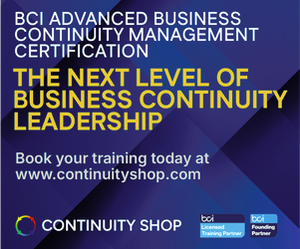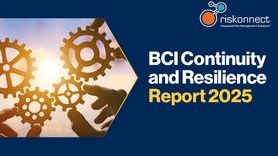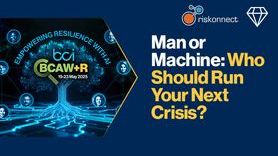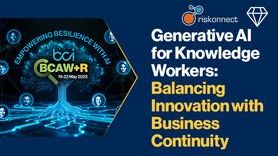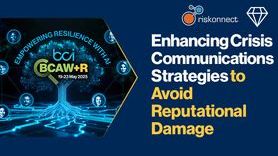John Moore interview - committee member for the Hong Kong & Macau Chapter
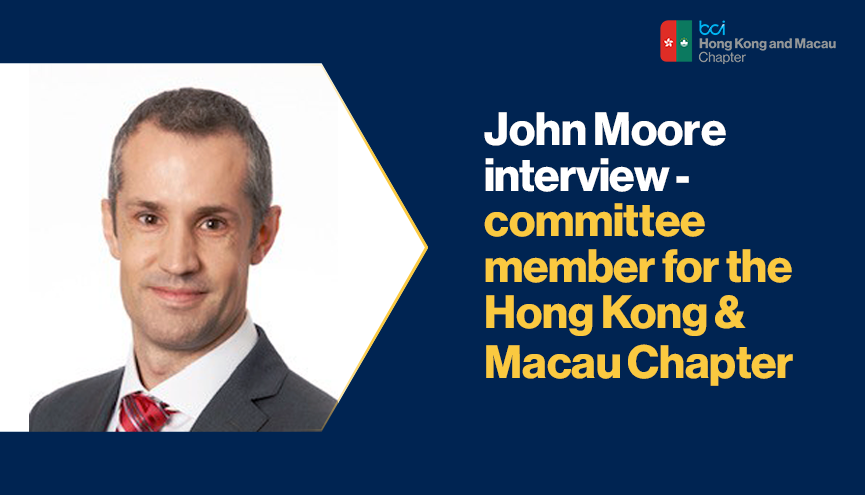
After previously serving as an active member of the Chapter, we are pleased to now introduce John Moore as a Committee Member of the Hong Kong & Macau Chapter. In this profile, John highlights some of the emerging threats in the region, what changes he would like to see in the sector and showcases an upcoming event.
Could you please tell us about your current role and how you got into Business Continuity (BC)?
I hold a BSc in International Disaster Engineering and management. Since then, I’ve been fortunate to work in a BC Management role within many great organizations over 18 years. These jobs have taken me across the world, working in consulting, government, disaster relief NGOs, the legal sector and nine years in the financial sector.
What do you see as the emerging threats and risks, as well as the trending topics, in your region?
To my mind there are two parts:
Now: COVID-19 continues to disrupt supply chains and travel in parts of the region remains a challenge. The region is also in the midst a period of complex geo-political tensions, with sovereignty over the South China Sea and recognition of Taiwan as an independent state to name only two.
Long-term: Inaction on climate change continues to rise up the top-risk ratings (World Economic Forum, 2022 annual report). As such, economies need to transition to net-zero carbon emissions. Without action on extreme weather, biodiversity loss will increasingly impact all elements of businesses (and our lives).
What has been one of your greatest challenges in this industry?
A (sufficient) budget!
What changes would you like to see in this sector?
I see a divide in the interpretation of ‘operational resilience’ across different sectors and geographical regions. From my perspective, the emergence of the term is a reminder to ensure that:
- a BC Management programme is customer-centric
- tolerance levels are defined and tested
- the systemic risk to the industry if the organization were to fail is assessed
- interdependencies (internal and external) are mapped.
For me, this is BCM done well and, rather than create a new set of standards/guidelines, this should be emphasised in existing BCM guidance - as achieved by the Singapore Monetary Authority, for example.
What piece of advice can you share for others working in BC and resilience?
Remain intellectually inquisitive. This role lends you to be one of very few people in your organization with the inherent knowledge of the inner workings of processes, functions and technology. Therefore, one of the greatest values is to present this collective knowledge in a concise way.
What upcoming activities are being planned within the Chapter?
After three years of social distancing measures preventing us from gathering in groups, we’re going to have a conference on the 11th November. Please refer to the events calendar on the BCI website for details. It will be great to (finally) see you there!
Anything else you want to add?
I’m looking forward to connecting with more members of the Chapter. My door is always open!
To be the first to know about BCI News and more follow us on LinkedIn here, or on Twitter @TheBCEye

